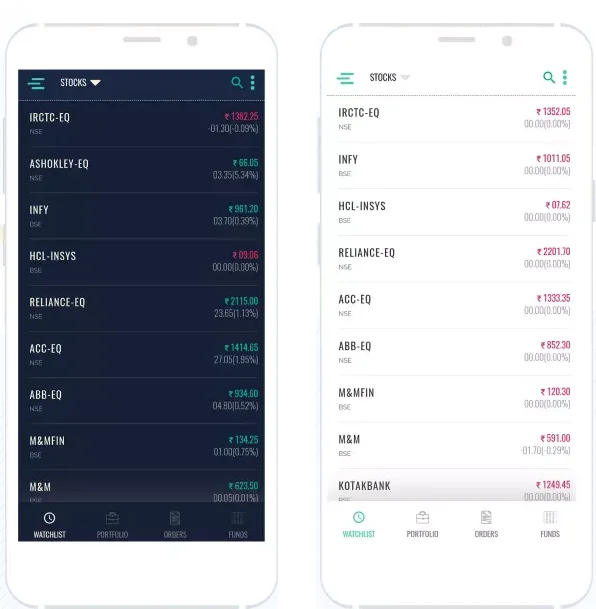Defining Your Risk Appetite

In the previous chapter, we discussed the first step involved in the process of picking the right mutual fund. The purpose, expected return and the time frame within which we expect to achieve our financial goals are few aspects involved in the first leg of taking the financial journey. In this chapter, we will learn about the risk involved in this journey. We will explore what risk appetite is, how important this concept is for you and how you can develop a bearable risk appetite to get optimum returns from your mutual fund investments.
Remember Ranjit? Well, he called me today with a well defined set of goals. Now he doesn’t just want a vacation house in Goa, but also wants to retire at an early age of 45 and travel around the world. Now he is wondering about what should be the next step if one has redefined the goals to something bigger?
A bigger goal comes with an increased risk. Whenever you are thinking about reward or return on investment, the term ‘risk’ should always come into the picture. As we have discussed it in the previous modules, risk and reward are the two components of investment that work directly in proportion to one another. With increase in one, the other goes up as well, and vice versa.
Suppose Ranjit just had a goal of buying a new car, the possibility of achieving that target is much more likely and therefore, his appetite for accepting risk would be higher compared to that involved in the goal of buying a dream house. Do you agree?
Well, this brings us to the concept of ‘risk appetite.’ How much risk should you take in order to earn the expected return depends on the underlying financial goal. The tenure for achieving that goal also plays a crucial role in this.
So let’s go ahead and get into understanding risk appetite.
What is Risk Appetite?
If one has to define risk appetite, it would go as – “the quantum of risk an individual or a company is ready to take to achieve its financial goal”. In simple terms, risk appetite means the amount you can afford to lose in order to gain the desired return.
In case of companies, ISO 31000 under the Risk Management Standards has been specifically designed to guide the organizations with methodized risk management practices for safeguarding their investments. Similarly, for individuals, it is equally important to have a defined risk appetite to safeguard from the stock market risks.
Benefits of Risk Appetite
“I understand that risk is an unavoidable part of investing, but in what way does it serve my financial journey?”, asked Ranjit. Well, there are numerous benefits assessing one’s risk appetite. Here are some of them.
- Clarity: You get a better clarity and understanding of how much amount you can lose maximum if the plan does not work out in your favour. You can manage your investments better with a clear picture of your exposure.
- Informed decision-making: The decision making process becomes effective with a well defined risk appetite. As long as the predefined risk levels are not triggered, you can stay invested without any situation to panic.
- Optimal allocation of funds: When you know the limit of your exposure, you can allocate your funds in different types of mutual funds as and when better opportunities are available. It helps you in benefitting from better trade offs.
- Helps in asset allocation: It helps in finding which type of mutual fund is ideal for you. If you are a low risk taker, debt based mutual funds are a better option whereas for high risk takers, investing in equity-oriented mutual funds might be more suitable.
You will practically understand these aspects once you apply the skill of calculating risk and moulding it to work in your favour and optimize your portfolio.
Understanding Risk Appetite
As we saw, risk appetite is the amount you can afford to risk to earn the desired return from investment. It is in absolute terms. On the other hand, there is risk tolerance which is psychological preparedness to take the risk. Both these components together define an investor’s risk profile. The factors that affects risk appetite, risk tolerance and eventually risk profile, are:
- Age of the investor,
- Income earning capacity and
- Duration of investment.
This is not an exhaustive list of factors that affect risk taking capacity of an individual. There are many more that differ from person to person. It is a very subjective topic. How much money can one afford to lose totally depends upon their pocket size, right? But there are various risk profiles that can broadly be defined as follows:
- High-Risk: This category of investors look to get high rewards and take high risks as well. The type of mutual funds suitable for them are equity-oriented funds since they are the risk takers.
- Medium-Risk: These investors look for steady returns by taking a medium level of risk. Mix funds that include both equity and debt components, or funds with blue-chip companies are preferred choices for these investors.
- Low-Risk: This is the most conservative category of investors with minimal risk taking capacity. Mostly retired people fall under this category. Their preferred choice is debt-based funds that bear the lowest possible risk.
Developing Risk Appetite
The possibility of completely avoiding risk to earn rewards is out of the question as it goes hand in hand with the returns. So the perspective of considering risk as a favourable component in your investment plan isn’t wrong, is it? And if the risk is good for you, there has to be some parameters to confine and calculate it.
As Ranjit understood the importance of risk appetite and the role it plays in selecting the right mutual fund, he became more curious to learn how to analyze and develop risk appetite. Are you curious too? Here’s how.
- Understand your financial goals: As a first step to selecting mutual funds, a predefined goal needs to be set. This helps in understanding how much risk can be taken to achieve that goal. If it is a small goal like buying a car, a smaller level of risk must be taken. But if tenure is, say, one year, then it demands higher risk appetite.
- Decide your risk profile: Based on the goal you set, your risk appetite gets decided. Different factors combined together define your risk profile. You could either be a high risk investor or balance risk taker or a very conservative investor. Note that the risk appetite changes as you get closer to your financial goal.
- Communicate with financial advisor: It is always advisable to have an open conversation about all your finances and your goals and visions with your financial advisor to get a better understanding of your situation. In planning a path ahead, knowing where you stand as of today is a very important step.
In nutshell:
- After goal setting, the most important step is to define your risk appetite before you pick the right mutual fund for investment.
- The risk appetite meaning and extent can differ for different investors but the role it plays in financial planning remains the same.
- Your age, income, tenure for investment, and goal play a vital role in defining your risk profile.
- Which type of mutual fund is right for you depends on whether you belong to a high-risk, mid-risk, or low-risk category.


How Would You Rate This Chapter?
Next
Comments (0)